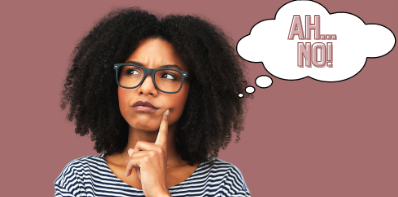The Art of Openness
Breaking Free from Defensive Communication
In the world of conversation, the instinct to protect ourselves often takes the form of defensiveness—a natural yet counterproductive reaction when met with criticism or differing opinions. Imagine this scene: In a team meeting, Jane presents a new proposal. Instead of constructive feedback, she faces resistance and criticism. Her defensive response inadvertently sets the stage for a heated debate, and what could have been a productive discussion turns into a battleground of egos.
Being Defensive During Conversations
The mistake of being defensive during conversations occurs when we react protectively to criticism, differing opinions, or challenges to our ideas. This knee-jerk response often escalates conflicts and hinders the potential for productive discussions.
Hindering Productive Dialogue
When Jane responds defensively to the criticism of her proposal, she inadvertently closes herself off from the opportunity to learn, adapt, or find common ground. Her defensiveness creates a rift between her and her colleagues, turning the conversation into a battle of wills rather than a constructive exchange of ideas.
Defensive responses can quickly escalate conflicts, as they put others on the defensive as well. It becomes a cycle where everyone is more focused on defending their viewpoint rather than finding solutions or understanding each other. This not only hinders productivity but can also lead to damaged relationships and missed opportunities for growth.
Cultivating Openness and Empathy
To avoid the mistake of being defensive during conversations, we need to foster openness and empathy in our interactions.
Here's how:
✅ Take a deep breath: When met with criticism or differing opinions, pause and take a deep breath. This simple act can help you stay calm and composed.
✅ Listen actively: Listen carefully to what the other person is saying, even if it challenges your perspective. Practice active listening to ensure you understand their point of view.
✅Seek clarification: If you're unsure about something, ask questions to seek clarification rather than making assumptions. This shows a genuine interest in understanding.
✅ Reflect on feedback: Instead of reacting immediately, take time to reflect on the feedback or differing opinion. Consider if there might be merit in what the other person is saying.
✅ Express gratitude: When someone offers feedback or a differing opinion, thank them for their input. Acknowledge their effort in contributing to the conversation.
Reflective Exercise
Recall a recent situation where you responded defensively during a conversation.
How did your defensiveness impact the discussion and the relationship with the other person?
Consider how you could have approached the situation differently by practicing openness and empathy.
In conclusion, the mistake of being defensive during conversations can be a significant roadblock to productive dialogue and healthy relationships. By cultivating openness and empathy, we create an environment where constructive discussions thrive, even in the face of criticism or differing opinions. Remember that openness allows for personal growth, fosters better relationships, and leads to more effective communication. So, the next time you find yourself in a conversation that challenges your views, take a breath and embrace the power of openness—it may lead to unexpected breakthroughs and deeper connections.
FREE GUIDE
Unlock the Secrets to Smooth Sailing in Tough Conversations!
🚀 Download "Navigating Conversational Minefields" Now! 🚀
With this invaluable guide in your hands, you'll transform challenging discussions into opportunities for growth, understanding, and success. Say goodbye to misunderstandings and conflicts and hello to productive, empathetic dialogues.



